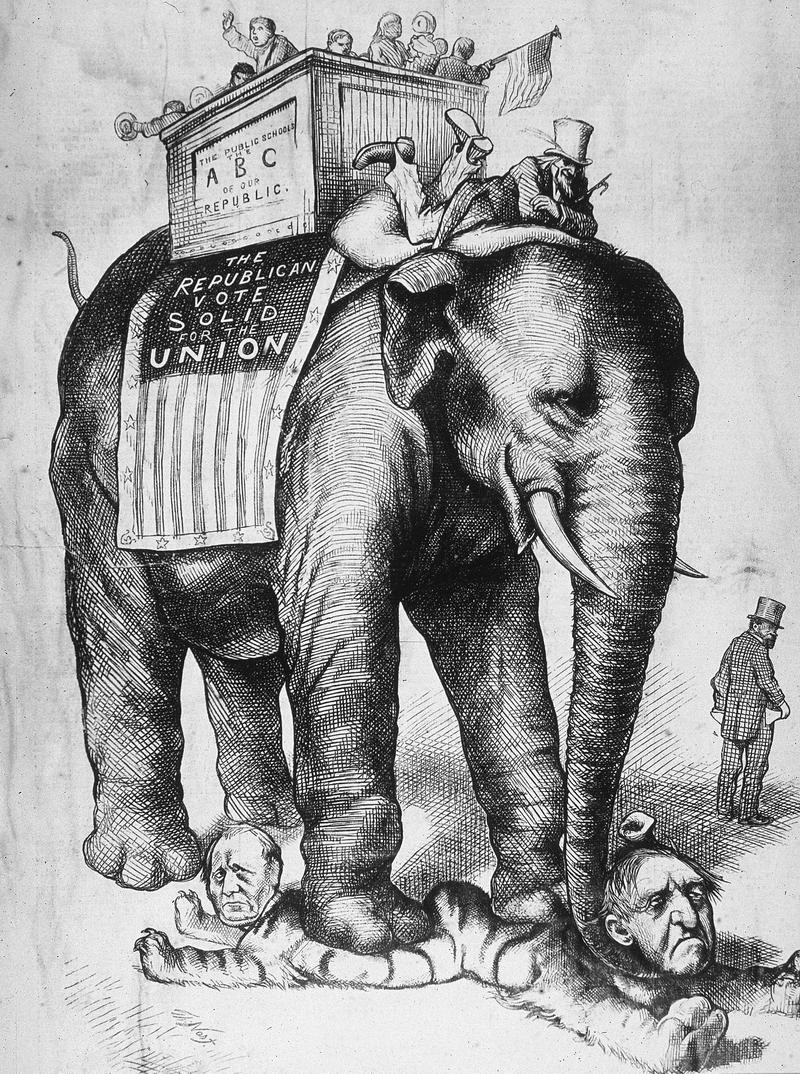Radical Republicans: The Anti-Slavery Group Who Pressured Lincoln Into Abolishing It
By | May 2, 2021

In the mid 1850s, an unofficial coalition within the Republican Party began to form as some of the more radical Republicans grew tired of the moderate approach the party took toward abolishing slavery across the United States. While many Republicans of the time spoke out against slavery, it seemed that not all were willing to do what it took to put an end to the terrible institution.
The Moderation Of Lincoln
In fact, although he is seen as the "Great Emancipator" today, Abraham Lincoln was a moderate Republican who believed that, while slavery was morally evil, a gradual approach to abolition was more effective and compromise was necessary. Before his election, Lincoln believed it was the job of the Republican Party to woo Americans, as "our government rests on public opinion [and] whoever can change public opinion can change the government."
Likewise, most Republicans of the Antebellum era were more concerned with stopping the spread of slavery into the Western states than the immediate emancipation of those enslaved in the South. They believed black Americans should have fundamental human rights, but not all believed those should include political rights like voting, and almost none believed they should have equal social standing (especially when it came to taboos like interracial marriage). Even during the Civil War, Lincoln was much more passionate about reuniting the nation than abolishing slavery. "If I could save the Union without freeing any slave, I would do it," he famously wrote to New York Post editor Horace Greenley. "And if I could save it by freeing all the slaves, I would do it; and if I could save it by freeing some and leaving others alone, I would also do that."
The Radical Republicans, therefore, were some of Lincoln's greatest critics. They demanded not only a swift and total end to slavery without compromise but also fully equal rights for black Americans, which rubbed many moderates the wrong way.

The Radical Republicans
Ever the uniter, Lincoln appointed many Radical Republicans to his cabinet, including Salmon P. Chase as the secretary of treasury. (Fun fact: Chase put his own portrait on the very first design of the dollar bill, which stayed there for seven years until finally replaced with George Washington in 1869). The Radicals were unhappy with the Emancipation Proclamation, as it didn't free slaves in either the North or the West, and since Southern slave owners weren't keen to obey anything Lincoln said, it therefore resulted in freedom for very few. Finally, the reality of the ongoing Civil War proved to the moderates that the only way forward with one unified country was the complete destruction of the institution of slavery, so the 13th Amendment abolished slavery everywhere on January 31, 1865.
After the war, however, the Radicals again bumped heads with Lincoln, who wanted to limit economic suffering and show mercy to Confederates for the sake of peace. Indeed, even the president of the Confederate States, Jefferson Davis, was only imprisoned for two years before being pardoned. Despite their desire to punish the rebellious states, however, the Radicals moved on to form the Joint Committee on Reconstruction and drafted the 14th Amendment, which guaranteed equal legal protection for all citizens regardless of race. By 1866, they had won full control of Congress.

Mixed Results
Unhappy with Andrew Johnson, the Radicals supported none other than famed General Ulysses S. Grant for president in the election of 1868 and worked closely with him during the Reconstruction era to draft and push the even more progressive 15th Amendment, which promised that the "vote shall not be denied or abridged by the United States or by any State on account of race, color, or previous condition of servitude." After the war, black Americans voted in droves, and many of them held office (including former slaves like South Carolina Congressman Robert Smalls). In 1827, an impressive 320 seats on the federal and state level were held by black legislators as many Southern districts flipped Republican.
It wasn't exactly happily ever after: The era of Jim Crow and the rise of voter intimidation and barriers like literacy tests once again curtailed the black vote until the 1960s. Radical Republicans, black and white alike, were subjected to terror and violence by white supremacy groups like the Ku Klux Klan, who assassinated Radical Republican and Arkansas Congressman James Hinds for daring to offer equal educational opportunities. Reconstruction died completely under the presidency of Rutherford B. Hayes, and unfortunately, much of the political and civil rights work of Grant and the Radical Republicans was nullified for the next half century.

